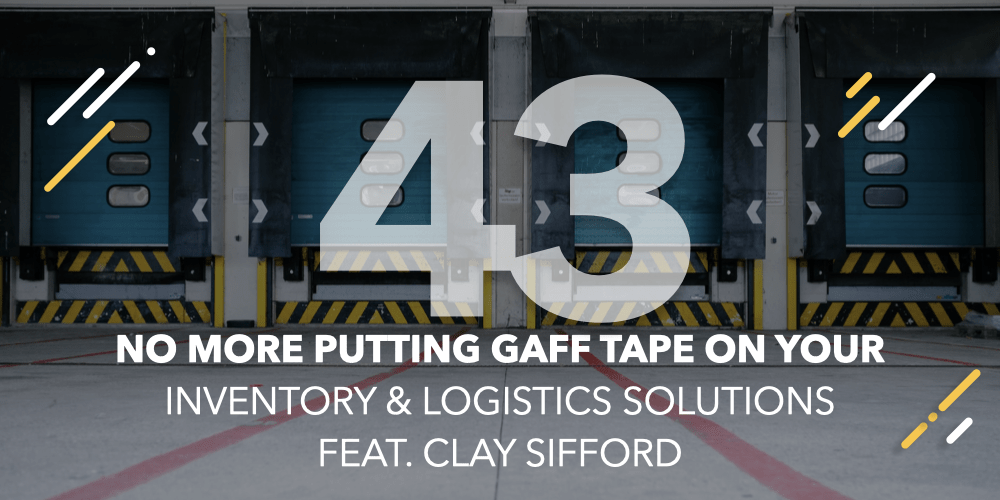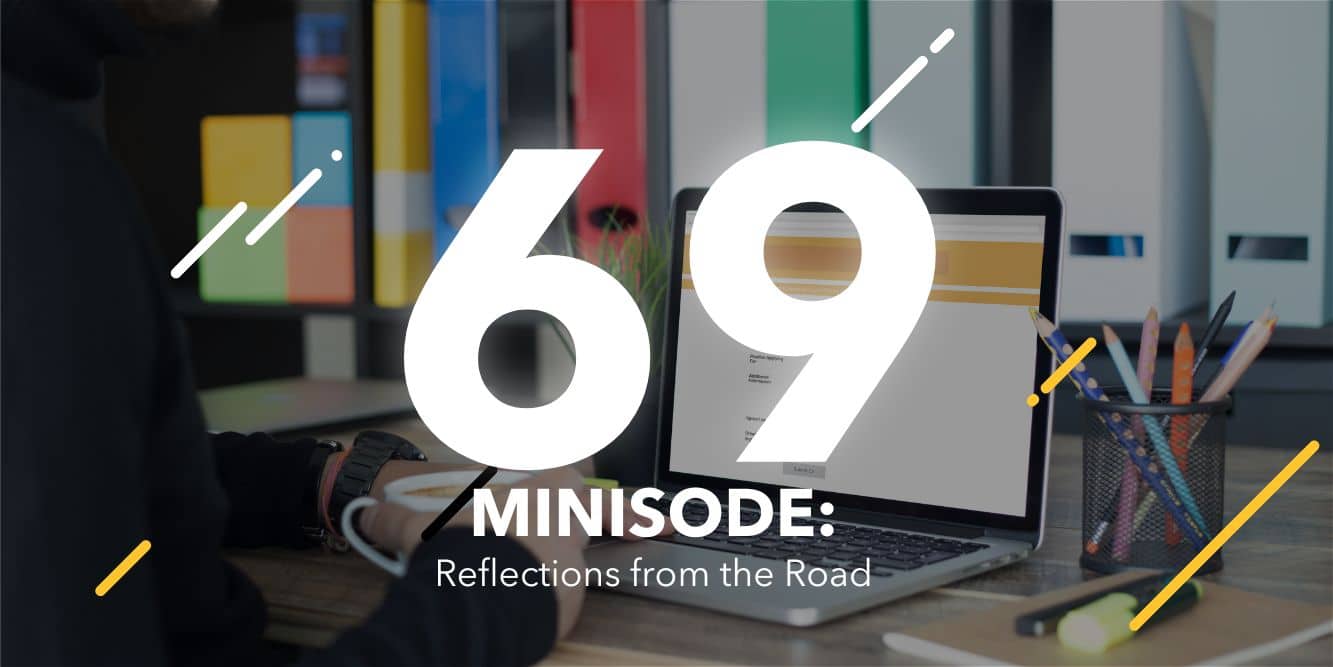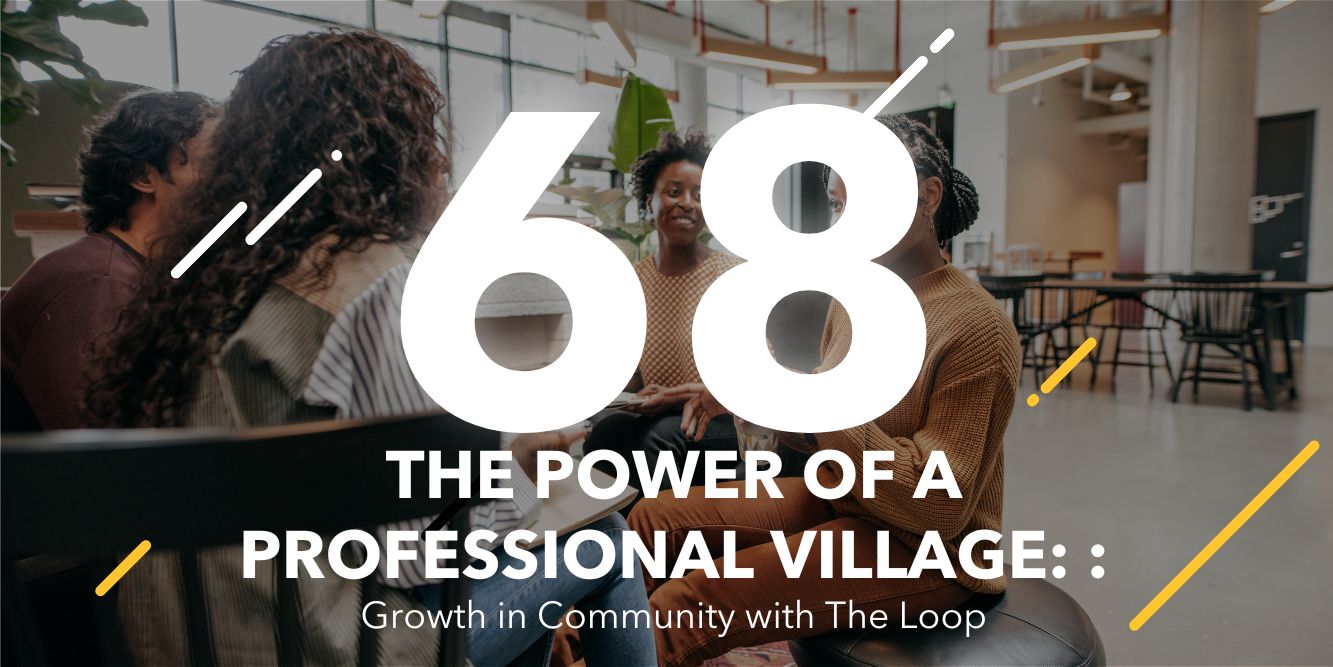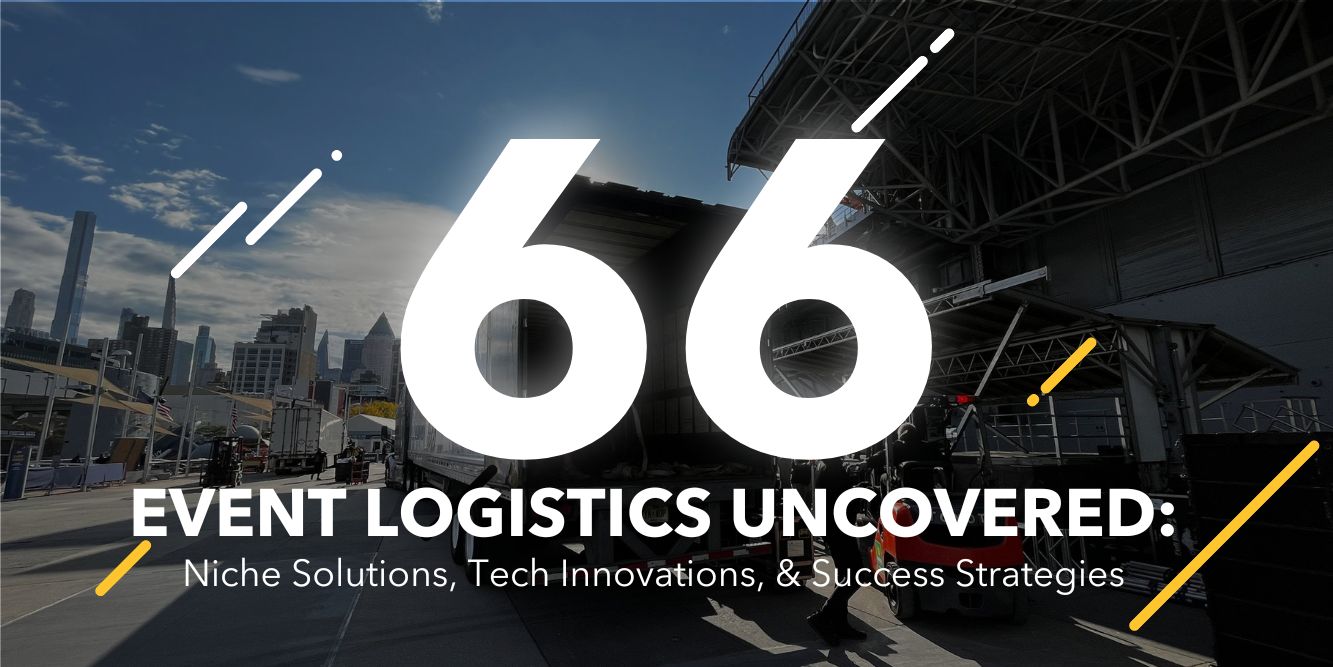Listen 🎧
📍Key Takeaways
#1 The Need for Streamlined Processes
The proposal process in the event industry can be time-consuming and involve multiple companies, causing delays in decision-making. We discuss the importance of addressing this issue and introduce an easy solution that has not been implemented yet in the industry.
#2 Prioritizing Privacy and Security
With new privacy laws and regulations, protecting customer information and business data is crucial. We highlight the rising sophistication of hackers and provide tips on staying ahead of them, including asking software providers if they are sock two certified. Privacy policies like GDPR and state-specific policies are also crucial considerations.
#3 The Power of Consolidation and Simplification
Many event companies struggle with using multiple software solutions to compensate for their existing systems’ limitations. This fragmented approach leads to complexities, inefficiencies, and increased costs. We discuss the demand for a single, all-in-one solution that can consolidate functionalities, streamline operations, and improve communication.
Watch 📺
Read the Transcript 📚
[00:00:00] Angela Alea: Welcome to Corralling the Chaos podcast, where we talk publicly about the things you’re worried about privately. My name is Angela Alea, and I’m your host. This is the event industry podcast for companies and crew, where we’re going to go deep and nothing is off limits. Welcome back to corralling the chaos, where today we are going to talk about settling when it comes to your technology tools and why our industry can just no longer afford to do that.
[00:00:31] And we recently did a survey where we got an overwhelming amount of responses and we learned some really interesting things that we wanted to report on and dive into today. And to help me do that, I’ve asked industry veteran and LASSO founder, Clay Sifford, to join us. Clay has been in the event industry for over 20 years initially as the founder of a mid sized production company.
[00:00:55] So he has first hand felt the pain of insufficient tools. [00:01:00] And then he left that company to start LASSO to begin solving the problem for the industry. So welcome, Clay, and thanks for helping us unpack some of these things today.
[00:01:09] Clay Sifford: Yeah, glad to be here. Thanks for having me.
[00:01:12] Angela Alea: Yeah. Obviously there’s been a lot of evolution that has happened in just the tech space as a whole.
[00:01:21] But not as much in the event industry. And so we talk about that a lot on the podcast on why that is, what are all the barriers to entry when it comes to creating modern software, better tools for our industry, but today we want to talk about why our industry has settled and kind of what that’s looked like and why they can’t afford to settle anymore.
[00:01:45] And so we sent on industry survey to numerous people in the industry different job titles, just to kind of get a feel for how they’ve operated over the last decade, what’s important to them, what’s held them back. And so Clay, I would love, I’m [00:02:00] going to throw some stats at you and I would love to kind of get your take on how you interpret some of these stats.
[00:02:07] All right. One of the things we learned was 28% of event companies. have switched inventory tools multiple times in the last few years. And furthermore, we found out 25% of those switched because they said their current one was just too hard to use. So how do you take that? What does that tell you about the state?
[00:02:31] Of inventory software right now, it’s
[00:02:33] Clay Sifford: pretty simple is that our industry still hasn’t found what it’s looking for. Right? And I think that’s a huge issue. I think the problem is, that number one, it’s expensive to build software. Number two, I think a lot of the legacy companies in the industry that have been around for a long time.
[00:02:49] Just haven’t really met the expectation of what they’re really looking for. And they want something, I think our industry really wants something. They’re desperately seeking something [00:03:00] that looks good. That’s very intuitive that captures the day to day workflows and they want it all in one place and they want it secure.
[00:03:09] And I just think that they keep switching and they’re because they haven’t found it.
[00:03:14] Angela Alea: So why do you think? A good solution is so hard to come by for our industry, right? If there’s not many people even attempting to build good software for our industry, why is that? What are some of those barriers to entry outside of just the sheer cost it takes to build good software?
[00:03:32] But, why do you think there’s very few people trying? Yeah
[00:03:37] Clay Sifford: I think I think you have to really understand the problem first which is a huge component. And I think that’s part of we’ve. There are probably 10 plus companies that have I would say the control points or the inventory systems out there that are in our industry, but I [00:04:00] wonder if you see people still struggling to with that product market fit and not really kind of.
[00:04:08] fulfilling what the customer wants. It just tells you that you just haven’t given them what they really need. Right. And I think you have to understand it, understand the problem, understand the workflow, marry all those two all those components together to kind of come up with a good solution that the industry will accept.
[00:04:27] And it just hasn’t happened yet. Yeah, I
[00:04:29] Angela Alea: think it’s also interesting The nuances that exist within each company, right? It’s one thing to build a piece of software to solve a problem, a specific workflow, but when you’ve got thousands and thousands of event companies, all who operate just a little bit differently, right?
[00:04:48] It’s a moving target. And I think that’s the art behind. Creating good software that can kind of meet the industry where it is. And the reality is the industry is in a lot of different [00:05:00] places, right? Their workflow is just a little bit different. The workflow to produce a festival is going to be very different than the workflow to produce a concert, right?
[00:05:09] And so building technology that’s flexible enough to understand those nuances is just hard and takes a lot of time and it takes a lot of brain power. And it takes a lot of cooperation from the industry too. So I think there’s so many things that kind of contribute to that. And it’s no small feat to try to figure those things out.
[00:05:28] Clay Sifford: Also, I think one other point I’ll add there is that if you think about the, our past 10 years. In the industry, just as in general, like what’s been going on the cloud wasn’t something when a lot of the legacy systems started out right there there weren’t any cloud based solutions.
[00:05:45] And so since now everybody is either working remotely has a lot of third time people like third party groups working on their projects. If you don’t have a system kind of where you can do all of that in one place you’re not [00:06:00] really in control of What you’re managing.
[00:06:03] And I think what has happened is, that the legacy systems have tried to come up to date. With just switching over to the cloud, which is just a big, it’s a process in and of itself. And because of that they’re competing interest, right? Are the customers out there and the people in the industry, they want new features, they want new solutions.
[00:06:25] But when you’re really, you can’t offer those new things if you don’t fix that problem first, right? Of moving to the cloud. And that’s why you haven’t seen any innovation or very little of it. Which is again back to that product market fit and the industry people just keep hopping from one software to another software with hopes that they’re going to find it and they
[00:06:48] Angela Alea: just haven’t.
[00:06:50] Absolutely. So another staggering statistic as a result of our survey, 84%. Of event companies [00:07:00] said they would adopt a new inventory system if it’s integrated with their project management and workforce management software. I don’t know about you, but that tells me people are ready for consolidation all in one workflow, but just kind of curious, like, what does that tell you?
[00:07:19] 84% Are open to adopting a completely new platform to run their business on, which again is no small, it’s not like, Hey, I’m going to turn on this mobile app. These companies are running their, business on this. And 84% said they do it. If it’s integrated with the other workflows. So just kind of curious, what do you take from that?
[00:07:39] Clay Sifford: I take away the exact same thing. I think it’s incredibly important and it’s, now the table stakes, right?
[00:07:45] Angela Alea: So the other thing we asked was what’s important to you, either things that you currently have that you want to continue to have, or if you were to be able to reimagine and rethink. What you would run your [00:08:00] business on?
[00:08:01] What are the most important attributes that platform would have to have and I’m gonna I’m gonna kind of give you a few of those the first one was 65% named it needs to be part of an all in one event production solution the second one Was 63% named a modern, user friendly interface, and we can’t state that enough, right?
[00:08:25] Software has like, evolved a hundred times at the rate that our, industry has. And so people, they just expect it to be modern, user friendly, intuitive. The third one was, Something that was built specifically for event companies. Again, going back to all those nuances, they want to be understood.
[00:08:45] They want to know that you’ve sat in their shoes. You understand all the complexities that they’re dealing with. So being built specifically or for event companies. And the last one kind of surprised me cause I kind of feel like we’ll. Duh, of course you’re going to need that, but [00:09:00] it’s really important, but excellent support and service.
[00:09:03] And I think that means something different to different companies. Some people think support means. A ticketing system, right? Other people think support means an actual human being to talk to who’s responsive, who answers their phone, who helps you problem solve, and who’s like in it with you.
[00:09:24] But let’s kind of break down each one of these must have features. What do you think makes them so important? So let’s start with being part of an all in one event production solution. What do you think makes that so important? Why is
[00:09:38] Clay Sifford: that really what’s happened in the past, right? You’ve got you have these operating systems and then you have these companies that are on these systems trying to compensate for all the things that they can’t do.
[00:09:49] And so they’re having to marry these other horizontal solutions, right? That aren’t built specifically for their workflows. And then they have to try to cobble them all together [00:10:00] and they have a bunch of middlewares and they have to pay people to actually do it. And then they’ve got to keep up with it.
[00:10:04] And then as software evolves, they either have to keep changing it or adding onto it. And so what used to be one or two different softwares now is 12 to 15. And so then you’ve got your own team to kind of just keep up with all of that. And I think that’s a huge problem. And so I think that there is a better way you can do it all in one place.
[00:10:25] People are dying to have that just hasn’t really been offered. But I think that’s, it’s just really important to kind of cut all that out. Everyone wants to consolidate, it’s just, it’s faster, it’s more efficient, you can save more money you’re going to make more money you’re going to have fewer mistakes.
[00:10:45] Yeah, exactly. There’s so much, there’s so much you can lose out just in communication, just by itself. Yeah,
[00:10:51] Angela Alea: absolutely. What about the second one? The most, a second most important attribute, people named a modern user [00:11:00] friendly interface. Yeah. Why do you think that’s so
[00:11:02] Clay Sifford: important? I think if you live on a software, you it needs to, be easy and it needs to look good.
[00:11:08] I mean you’re, literally on it all day, every day. And I think if it just doesn’t, I don’t know, feel good, work the way you need it to. And it’s not intuitive. It just keeps you from being in a as efficient as you probably should be. And Probably just changes your outlook.
[00:11:27] Angela Alea: And also thinking as our labor workforce changes, people are expecting to work for companies who have good tools.
[00:11:35] To walk into a company who’s still on a spreadsheet, who’s on an antiquated system, you’re just not going to retain your team that way, right? And as you continue to bring new people into your organization, They’re just gonna expect more because that’s the way the world lives, right? Is technology and innovation.
[00:11:56] No surprise there. And then the third one built [00:12:00] specifically for event companies. Why is that so important, especially in our industry?
[00:12:05] Clay Sifford: I think what we do is Inherently complex, right? A lot of people don’t work in the same offices. You’re you, do subcontract a lot of these events out to other people because there’s specialists that might not live under your company’s roof.
[00:12:21] And you need to understand. Have the ability to collaborate where everyone is and what they’re doing at what time and how much it’s costing them. And I just think it’s really important that companies have a good handle on the projects that, you know that, other companies, their customers are actually entrusting to them.
[00:12:38] It’s really important.
[00:12:40] Angela Alea: And you also mentioned something earlier about a horizontal solution. For those of you that aren’t maybe familiar with that term a vertical solution is one that’s built specifically for An industry, right? They’re not trying to be anything to anyone else. Instead, they’re trying to go deep within one industry versus a [00:13:00] horizontal solution is, I don’t know, a project management tool like Monday as an example, right?
[00:13:06] That’s, and it’s a fabulous tool, right? It’s great for project management, but maybe not as great as project management built. For this specific industry that has freelancers coming on and off the importance of mobile applications when you’re at the show site restricting permissions for certain things, right?
[00:13:25] So Monday is a fabulous horizontal solution industry agnostic versus a vertical solution. And I don’t think we have many vertical solutions in our space. I think there’s a whole lot of horizontal, though, so certainly important. And then the last one, talk to me about your vision for support and service.
[00:13:44] Like, what does that mean to you? Especially as a previous founder of a midsize event production company, why does service matter so
[00:13:55] Clay Sifford: much? Yeah service matters because it’s it’s ultimately [00:14:00] when you’re living in these systems and they control what you do It needs to work for you and it needs to work when you need it to work.
[00:14:10] And I think part of the problem is, that if you have people who get stuck or if you’re bringing people on and off constantly, which is a huge that’s, a reality of, where the, labor market is today, there’s a lot of change and, you need people to get up to speed quickly, which.
[00:14:27] Gets back to your point of ease of use, which is a huge thing. And then you also need the service to kind of help people get to where they need to go. And then there is support is when, if something doesn’t work it’s not okay to have to go to some third party or link on a website and write a ticket and somebody overseas is going to go look at it and they’re going to get back to you whenever they choose to.
[00:14:50] And that’s just not okay because if, you’re an event company that event has to go on. And you can’t be slowed down [00:15:00] or inhibited, right, by your software. That defeats the whole purpose of being on it in the first place. It’s there to aid you, it’s to make you more efficient, it’s to make you better.
[00:15:08] And I think that’s that’s why you need people to help. I mean, it’s not just software it’s, the people that make it happen.
[00:15:15] Angela Alea: Yeah. And the other thing I would add to that is, there’s a difference between supporting your customer And being genuinely invested with your customer and having that genuine care and empathy, big word around here having the empathy for the customer, right?
[00:15:35] They’re at a show site running the shows tomorrow, it starts tomorrow and there’s a problem. It’s Saturday morning. It’s not okay, right? Shows happen 24 7, 365 days a year. So I think service and support means different things to different people. But clearly something that our industry is named is a really, important attribute.
[00:15:55] Clay Sifford: Yeah. I think it also helps when your company, a lot of our folks, especially [00:16:00] within LASSO they, are from the industry, so they understand the pain associated with with not getting something when you need to, because you can’t just push, off a start time. It doesn’t matter if it’s a concert, a festival.
[00:16:12] A general session of an important show. I mean, you can’t just back those things up. So it has to go on time.
[00:16:18] Angela Alea: Absolutely. Let’s switch gears a little bit and let’s talk about logistics. Also in this survey, we asked a lot about logistics. So here are a couple stats for you. 88% of event companies surveyed ship gear out of their market every single month.
[00:16:38] A third of those are shipping gear more than 10 times a month and yet zero of them have a way to track that gear in real time. And I don’t know why that, that one surprised me. I kind of felt like, if you’re gonna ship a fortune worth of your assets, cross country, [00:17:00] and there is an, a definitive deadline, it has, the show is starting at X date and X time, and you see that truck pull away, And you’re just kind of at the mercy of that provider to kind of tell you where it is.
[00:17:13] Is it going to get there on time? So I don’t know why that one really surprised me that Xero have a way to track that gear in real time. So it kind of just makes me wonder, like, how are they keeping track of that? So I don’t know. I’m just kind of curious your thoughts on that, Clay. Were you surprised by that?
[00:17:30] Clay Sifford: I’m not surprised at all. I mean, we know that everyone is they’re all doing events everywhere, right? I mean that’s, no surprise. It is a little bit surprising that things haven’t changed at all. But I think that a lot of these a lot of our, customers and a lot of people in the industry are using third party providers or they’re using brokers and they’re not in direct control of, Even the people that are delivering their gear.
[00:17:56] And so I think that what everyone wants is, and [00:18:00] if you’ve been in this situation before, I’ll never forget it. I had a show one time in Salt Lake City big snowstorm impacting One of our trucks, actually a couple of trucks that were supposed to get there. And we had a load in time.
[00:18:15] We had a bunch of people standing around. We kept waiting. I kept calling our dispatch asking, Hey, where is this? Where is this? Where is this? And it’s and they’re going to be there in two more hours, two more hours. And you said you said that six hours ago. And it just doesn’t come until it’s finally there.
[00:18:31] And it’s just, it’s kind of nerve wracking, right? It doesn’t happen all the time, but it happens often enough where it’s a huge problem where I think in a perfect world and we live in an age where you can track things now and we should find that out. And the dialogue should be there too, not just to track something, but to understand, and you should know well in advance if something’s not going to be on time where it’s needed.
[00:18:58] Angela Alea: Yeah. It’s like the industry has been [00:19:00] conditioned to just live without or make do, right? They just done it that way for so long. They just. That’s just how it is. So we accept it. Really interesting though. All right Next one only 17 of those that we surveyed We’re satisfied with the pricing of their trucks and transportation provider.
[00:19:21] So only 17%. So to me, that says, obviously it’s a very large cost of goods sold, especially if people are shipping gear more than 10 times a month cross country. That’s super expensive, hard to compete. Right. With the volatility of that pricing and how expensive it is. So let’s talk about buying power a bit here.
[00:19:41] So right now the industry doesn’t have any, they’re at the mercy of whatever trucking company they use at that moment in time, because it’s not like they have dedicated partners relationships. It’s kind of they send it out to bid who’s ever route is optimized for that. They kind of get it.
[00:19:58] But what would it mean for this [00:20:00] industry to actually have buying power when it comes to their logistics?
[00:20:04] Clay Sifford: Yeah, I think it’d be huge. Right. And so if you think about. You know that the stat that you had earlier what is it they’re doing? How many times a month are they sending semis out? Does it say
[00:20:17] Angela Alea: 88% of companies are shipping gear out every single month and a third are shipping them 10 or more times a month?
[00:20:24] So it’s
[00:20:24] Clay Sifford: often, yeah. So if you think about that, right? So 10 or more times a month, so one company doing that, right? So it’s 120 times a year. Generally what happens is they don’t have a, they might have a preferred provider. But in many cases, I’ve got a couple just in case. And so there’s a huge problem with that, right?
[00:20:43] So your number one, the max that you’re ever going to be valued to somebody is, 128 or 120 a year, right? And that’s not that might feel like a lot, but. In the grand scheme of things to these huge trucking companies, it’s just not a [00:21:00] lot. And then when you’re dividing that between 234 companies it’s also another issue.
[00:21:06] And so you’re never going to get optimum power that purchasing power that way when you’re splitting all that up. And on top of that, I think the other problem is, that most of the companies that we found are also going to brokers. And so somebody else like they’re making a huge markup what they have to go find somebody else to do.
[00:21:27] And so that’s also a big issue. And so I do think that there is ample opportunity to have on this. I think that’s one of the powers of LASSO is to have all the customers on our platform. When you have that buying power with a large enough company that can provide the platform that you need There’s just a ton of value that can be generated there.
[00:21:50] Angela Alea: So Clay, tell me, when we talk about innovation, you just mentioned why that’s important to LASSO. What, is LASSO doing to address [00:22:00] some of these opportunities for the industry?
[00:22:02] Clay Sifford: Yeah. So what we went ahead and did is we we worked hard to find a company. that had a couple things were really critical.
[00:22:11] Number one, we wanted to find a trucking company or logistics firm that had the scale right in the event that something goes wrong that they can actually recover. We’ve got and the partner that we chose just to give you an example, they’ve got a I would say an international platform specifically with logistics, North America, Canada, U.
[00:22:31] S. Mexico ease through the borders there. Yeah. 28, 000 of their own drivers, which is a huge thing. So they’re not brokering any of that out. And then the other thing is completely integrated in our platform. We wanted somebody that would do that with us because one of the other pain points we have not talked about yet is that it takes a while for these companies to get estimates.
[00:22:55] And then Turn that ultimately into an order. They want that [00:23:00] automated, they want that streamlined and they want that where they do their work, which is in the platform and then beyond that, they want the purchasing power and then once they’ve actually put the order in, then they want to be able to track it through the app from their warehouse all the way to the to the location of the event that they’ve got.
[00:23:17] Angela Alea: Love it. So in our survey we also asked what are the top three most important features? That you’re looking for in a logistic solution. And we gave them multiple options to choose from. And the top three that surfaced, no surprise, but would love to hear from you kind of why you think each of these are so important.
[00:23:38] The first one is real time gear shipment tracking. So to be able to see at any moment in time, exactly where that truck is. excellent customer service, and then instant all in quotes. So what makes each of those so
[00:23:52] Clay Sifford: important? I think the instant all in, we’ll start with the back. The instant all in quotes, I think is it many times [00:24:00] that you’re trying to put a proposal together for your customer, and you’ve got to go to this other company to go get this, or multiple companies to go get this.
[00:24:09] And it could take a while, and especially it could take a while to get several of them to get something back. where you can decide to go with one company, then ultimately put that into your quote to the to your customer. So it takes time. And in many cases it takes too long. And I think that’s something that should be remedied.
[00:24:29] For sure. There’s an easy solution. It just hadn’t happened yet in our industry. And that’s just kind of part of what we’re bringing to. I think part of what we’re trying to solve for. Second thing is, I think that when you’ve been on a show site and you haven’t gotten what you need and you can’t get a straight answer, that’s really when you want to be able to track it for yourself where you know exactly where that is at any moment in time.
[00:24:54] And then in the in the event that there’s a problem, You want to be able to pick up the phone and actually talk [00:25:00] to somebody who can give you a real straight answer. And I think that’s also part of the strength of working with a company that doesn’t broker anything to anybody else is that because they have the information.
[00:25:13] And oftentimes, I mean, that, that example that I referenced before from Salt Lake City that was through a broker and they kept telling me what they thought was true, but then the reality was something different. And so we were just sitting there waiting and it’s just, it’s really painful.
[00:25:28] It’s
[00:25:28] Angela Alea: terrible. You’ve certainly lived it. Let’s switch gears for a minute. And I want to talk about data and security and why that’s so important now more than ever, because I think. You say security to some and they automatically think one thing. You say data to some and they think that must mean reporting.
[00:25:50] Like, in today’s world, why is data and security so, important? Especially for those companies who may not be thinking about why it’s important. [00:26:00]
[00:26:00] Clay Sifford: Yeah I mean, it would probably surprise everybody to know that there isn’t a SOC 2 certified company in our space, right?
[00:26:06] Angela Alea: Which is SOC 2 for those that don’t know?
[00:26:09] What does that mean? What all’s involved in that? Yeah, so
[00:26:11] Clay Sifford: it is really just a compliance standard done by an outside third party. I think it was constructed by the American Institute of CPAs several years ago. But what it is, it’s really a It’s a process that you go through on how these companies are managing customer data, and it could be anything from security, availability, data protection, process, integrity, privacy, confidentiality, things like that.
[00:26:41] There are protocols that you’ve got to adhere to not only just when you’re writing code and deploying code, but how people are working within your industry. And you’ve got to get things like pen tests, like, just make sure that if you’re getting attacked online, like how, you’re, how resilient is what you [00:27:00] built.
[00:27:00] And I think that’s, it’s just really important. And I think people take for granted their security because they are they’re opened up. And if you don’t, if you haven’t put those protocols in place and really what those SOC twos do is that they go they take a look at your system, go through it, make sure that there aren’t any gaping holes.
[00:27:23] And when you do have a hole that they close it down and there’s a ton of different points of entry where you could have a problem. And what they do is they just really help identify and tell you how to lock those things down. You can prevent a problem long before it occurs. But if you don’t take that step and you don’t You know, adhere to at least opening yourself up to an outside third party who’s going to come in and test everything.
[00:27:51] You’re just asking for it. And and at some point it will happen.
[00:27:55] Angela Alea: Yeah, especially with all the new privacy laws that have passed. I mean, all [00:28:00] these systems, I mean, this industry revolves around people, their information, right? Each state has multiple privacy policies.
[00:28:09] There’s GDPR there’s confidentiality, right, when it comes to your customers. What are you quoting, right? There’s also, I mean, you’re running your business on this, right? Your revenues are housed in there, your expenses. And so the privacy around that is just so important. And the people who are hacking into these things, they’re smarter than ever before.
[00:28:31] And we have to, be always one step ahead of them. So I would encourage all of you, no matter what software tool you use, ask your providers, are they sock to certified super, super important to protect you and your people quite honestly. All right. So as we wrap up, I have kind of one final question for you, Clay, especially as we talked about in this episode the industry is at a point, I mean, the world is at a point quite honestly, not just our industry where [00:29:00] it’s no longer an option to settle for things that don’t allow your business to really be maximized and to do all that you intended it to do.
[00:29:10] What do you think the landscape looks like, especially now that we’re at this tipping point in the industry? What do you think that looks like? For those that are going to continue to try to make do and piece together 13 different pieces of software to accomplish 80% of what they need. I would say
[00:29:31] Clay Sifford: life is too short, right?
[00:29:33] There’s the hard way, which is the way that they’ve been doing it. And I would just encourage them to look for an easier way, right? This is, I mean, things have changed and I do think that they can kind of keep having these communication problems, keep having those 13 different systems, keep hiring people to try to kind of weave all these things together and keep paying on top of that to add [00:30:00] more things on and I think it’s just you should make it easier for your customers.
[00:30:04] You should make it easier for your employees. And there’s just a better way. And I, do think that it’s, really going to end up costing. You’re going to pay now or pay later. And the longer you wait, the more you’re going to pay and the harder it’s going to be. And I think from a competitive standpoint, it’s just going to put you behind.
[00:30:24] Angela Alea: Yeah. And it doesn’t have to be that way. Yeah, absolutely. I’ve had a lot of takeaways from this. I appreciate you joining us and kind of diving into a lot of these things. And my hope is for those of you out there that are kind of thinking about it if, nothing more than hold your providers accountable, right?
[00:30:47] That’s, what makes them better. And they’re either going to step up and deliver the things you need to make your business better. And if they don’t, you are settling. And, I think we’re at a pivotal time in [00:31:00] our industry. Where you just can’t afford to do that anymore. The stakes are too high.
[00:31:04] Competition is great. Our industry is evolving so quickly. And so I’d encourage you to not settle, not make your team settle, not make your clients settle. And not to mention at the end of the day, it adds to the value of your business every time you. Become more efficient and do some of those things.
[00:31:20] So never a bad thing to think about it that way as well. Thank you all for joining us today. If you like what you hear, be sure you hit subscribe. And if you have any questions or comments or feedback for us, we always love hearing it. Thanks again, Clay, for joining.
[00:31:39] Clay Sifford: Happy to be here. Thank you for having me.
If you have questions, comments, feedback, reach out to us at podcast@lasso.io. Thanks everybody!





